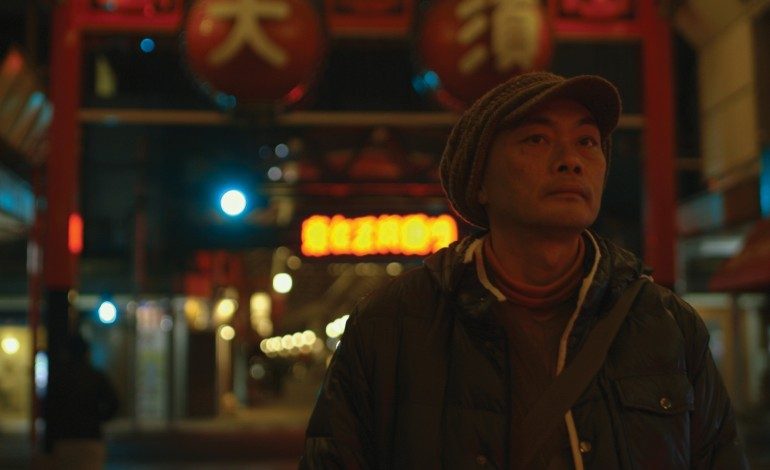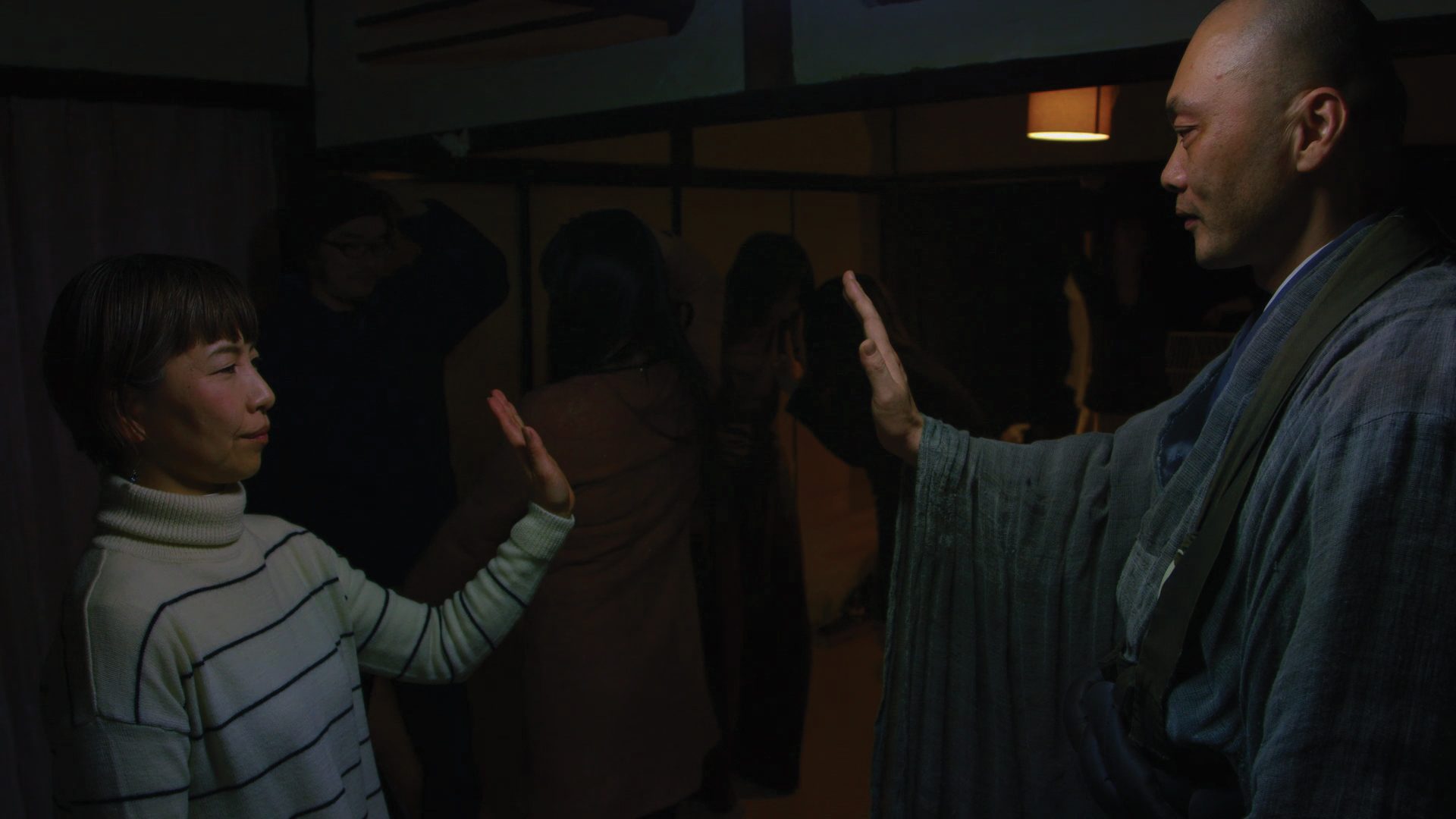

Lana Wilson’s latest documentary is, on its surface, a portrait of Ittetsu Nemoto, a Buddhist priest known for working to provide support to untold numbers of people contemplating suicide. The Departure also functions as a broader, more contemplative meditation on life, death, and what we give up when we die.
The film opens in a pulsating night club, where Nemoto dances almost serenely. Nemoto is, in many ways, not what you would imagine when you think of a Buddhist priest. He rides a motorcycle, dances, drinks more than he should, and spends a lot of his time on the computer or on the phone. On the other end of the line, are the countless suicidal people he’s helped through counseling and retreats. For the last ten years Ittetsu Nemoto has been studying suicide and working to help those considering taking their own life. Japan’s suicide rate is one of the highest in the world – so there is no shortage of people seeking Nemoto’s help.
The film is named for a seminar Nemoto runs called The Departure, where he and those in attendance simulate the act of dying and losing everything. It’s a powerful exercise that involves choosing the things that are most dear to you, and then, bit by bit, accepting the loss of all of them. I recommend trying it yourself. It helps provide context to the depth of hopelessness these people feel, and provides a glimpse beneath the bleak waters in which Ittetsu Nemoto travels every day.
The strain of Nemoto’s work is evident immediately from his appearance. We find out that he has already suffered one heart attack and that his pulmonary and vascular health are in decline. He’s warned that he is headed towards another, potentially life-ending, heart attack if he doesn’t start eating better and, more importantly, reduce the amount of stress in his life. This of course means cutting back on his work in suicide prevention – something he has no intention of doing.
Lana Wilson’s study of Ittetsu Nemoto becomes a broader study of death. Nemoto’s, self-admittedly fruitless, work to understand suicide is given additional dimension by the implications of his own actions. Nemoto has a small child, not even two years old, who is cared for primarily by his wife and his mother while he is away. With his work contributing to his increasingly declining health, he is in a sense, resigning himself to an early death. Nemoto is killing himself with his work, creating a palpable sense of dramatic irony.
It should come as no surprise that The Departure is not exactly a light affair. Lana Wilson builds the slight curve of a narrative out of Nemoto’s deteriorating health, but much of the film is procedural, showing him taking phone calls, meeting with people in crisis, and running his seminars. Without the tensile strength of a strong through line, the film, at 86 minutes, occasionally feels like its beginning to buckle under its own weight. The film feels stuck between an overly stuffed short film, and a padded feature. There’s undeniable potency to everything Wilson brings to the table, it just begins to feel a bit overwhelming.
Verdict: 3 out of 5
Ittetsu Nemoto’s story is an inspiring one and one that deserves to be told. Lana Wilson has created a deeply thought-provoking and meditative film. It might not always be easy to sit through, but The Departure is a spiritually and intellectually provocative documentary with enough meat on its bones to keep audiences chewing over it for a long while.

